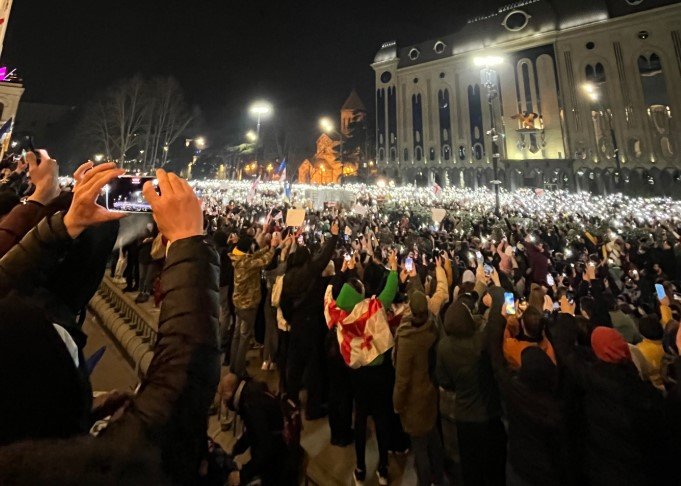Opposition leaders in Georgia have made a direct appeal to the European Union, urging it to reject the pro-Russian president-elect and take decisive action to safeguard European values in the country. The call comes amidst rising political tensions, with protests erupting over allegations of democratic erosion and growing ties to Moscow.
Opposition Leaders Demand EU Intervention
In a joint letter addressed to the EU’s High Representative for Foreign Affairs, Kaja Kallas, and the foreign ministers of member states, opposition leaders voiced their concerns about Georgia’s political direction. The letter, signed by figures such as Nika Melia of the “Coalition for Change” and Tina Bokuchava of “Unity – National Movement,” emphasized the need for new elections under reformed electoral conditions.
The opposition leaders demanded:
- The release of detained politicians, activists, and peaceful demonstrators.
- Sanctions against individuals accused of undermining democracy.
- Restrictions on visa-free travel for officials linked to the ruling Georgian Dream party.
- A formal declaration of the ruling regime as illegitimate.
These measures, they argued, are essential for restoring constitutional order and ensuring Georgia’s democratic future.

Criticism of Georgian Dream and Ivanishvili
The opposition’s letter directly criticized Bidzina Ivanishvili, founder of the ruling Georgian Dream party, for his support of Mikhail Kavelashvili, the controversial pro-Russian president-elect. They accused Ivanishvili of steering Georgia away from its pro-European aspirations and enabling anti-Western propaganda.
Kavelashvili, known for his role in introducing the contentious foreign agents law, has become a symbol of Georgia’s perceived drift towards authoritarianism. The law, which many see as a tool to suppress dissent, sparked widespread protests earlier this year.
U.S. Steps In with Sanctions
The opposition’s appeal follows the U.S. government’s recent actions against Georgian officials. On December 12, the U.S. imposed visa bans on approximately 20 individuals accused of undermining democratic processes in the country. The move underscores growing international concern over Georgia’s political trajectory.
Protests Signal Growing Discontent
Tensions reached a boiling point in late November, as thousands of protesters took to the streets of Tbilisi. Demonstrators clashed with police, building makeshift barricades and hurling firecrackers, demanding greater accountability from the ruling party.
The unrest reflects widespread frustration with Georgian Dream’s policies and its alleged alignment with Russian interests. Critics fear these developments could jeopardize Georgia’s EU membership aspirations and its broader European integration goals.
